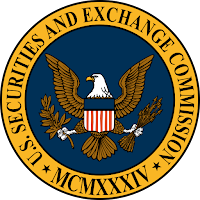The definition of a broker and dealer can sometimes be confusing, but one thing is clear. A person or entity who executes transactions for others on a securities exchange is clearly a broker.
Broker-dealer registration isn’t quick or easy, but with experienced counsel, it can be done. Given the alternative of an SEC enforcement proceeding, the process is, in fact, quick and easy.
According to the Securities and Exchange Commission press release, Neovest Inc., a provider of an order and execution management system (OEMS) that facilitates electronic trading, learned that lesson the hard way and has agreed to pay a $2.75 million penalty for its failure to register as a broker-dealer in violation of the federal securities laws.
According to the SEC’s order, Neovest, which was a subsidiary of JPMorgan Chase & Co., operated an order entry system that allowed customers to route orders for stocks and options to more than 360 customer-selected destination brokers for execution. According to the order, prior to its acquisition by JPMorgan Chase, Novest had been providing this service through its registered broker-dealer, Neovest Trading Inc. So far, so good.
However, the order continues and finds Neovest withdrew its broker-dealer registration when it was acquired by JPMorgan Chase, but continued to operate the OEMS as an unregistered broker-dealer by, among other things, participating in the order-taking and order-routing process and soliciting customers and destination brokers through the firm’s website and direct outreach at industry conferences and trade shows.
Making matters worse, according to the order, Neovest also continued to receive transaction-based compensation by having payments from destination brokers redirected to J.P. Morgan Securities LLC, a registered broker-dealer, which then transferred the proceeds to Neovest.
The SEC order further finds that Neovest’s failure to register as a broker-dealer deprived its customers of protections associated with registration, including inspections and examinations by the SEC and the requirement to establish policies and procedures to safeguard customer information. As detailed in the order, during the period that Neovest failed to register, the firm replicated a database containing customer authentication information, including user names and passwords, to one of its most active customers and failed to exercise any supervision over the customer’s use of the database.
The SEC’s order censures Neovest and finds that it willfully violated Section 15(a) of the Securities Exchange Act of 1934. Without admitting or denying the SEC’s findings, Neovest consented to the order and agreed to cease and desist from committing or causing any violations and any future violations of Section 15(a) of the Exchange Act, and to pay a $2.75 million penalty.





